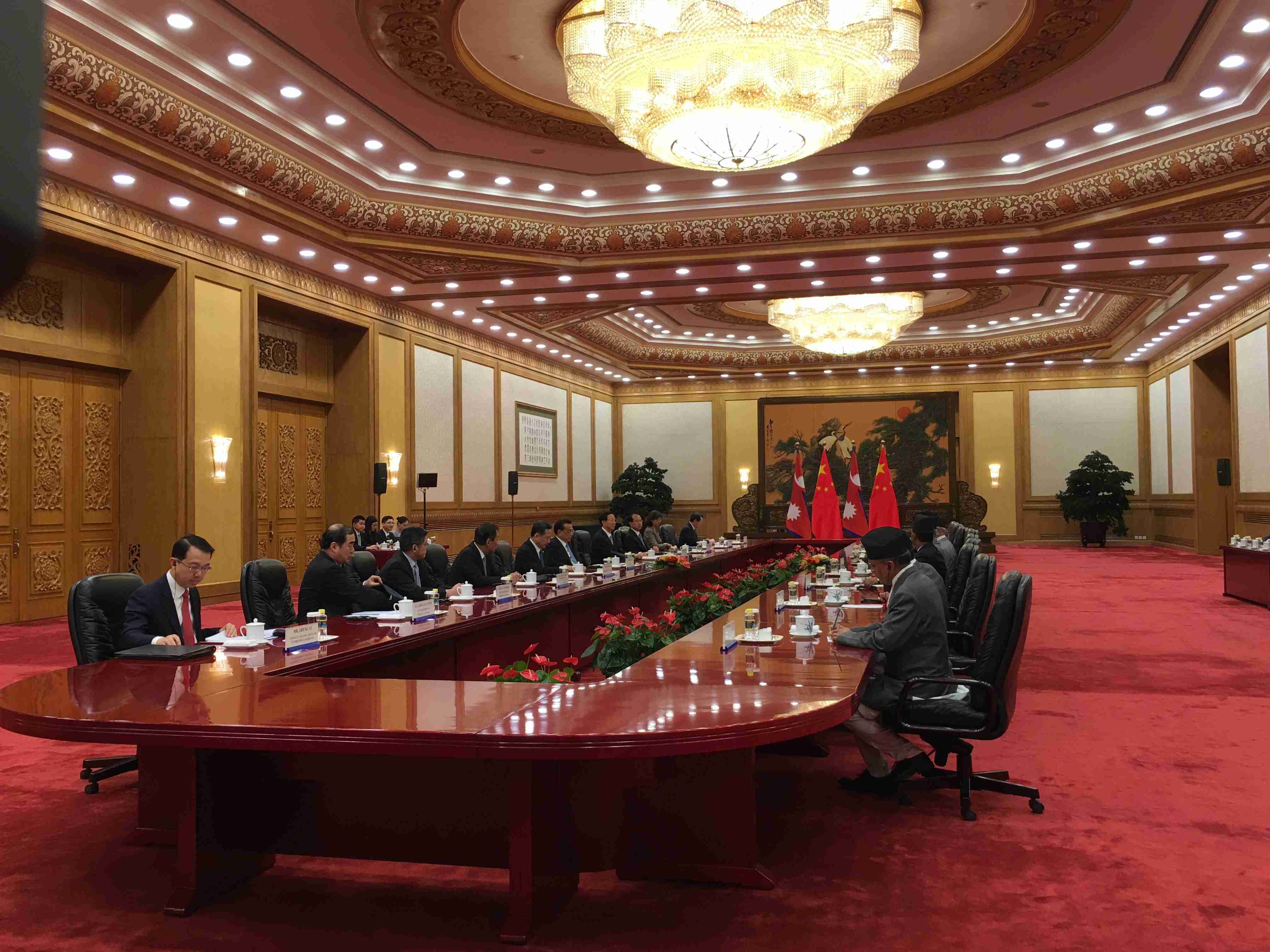
Chinese Premier Li Keqiang holds talks with his Nepali counterpart Khadga Prasad Sharma Oli in Beijing, June 21, 2018. (Photo: CGTN)
China and Nepal have signed 14 agreements on issues including infrastructure, railway, energy, post-disaster reconstruction and human resources.
It came after bilateral talks between Chinese Premier Li Keqiang and his Nepali counterpart Khadga Prasad Sharma Oli on Thursday in Beijing.
The two leaders also witnessed the signing of memorandums of understanding (MOUs) on capacity.
Prime Minister Oli began a five-day visit to China on Tuesday, June 19. This is Oli's first visit to China after his recent re-election. He visited China during his earlier brief tenure as prime minister in 2016.
Oli has voiced interest in China's proposed Belt and Road Initiative (BRI) on many occasions during his last visit. And he inked 10 deals with Beijing, including building a cross-border railway, which Nepal described as a historical agreement.
During Thursday's talks, Premier Li told Oli that China is willing to strengthen cooperation with Nepal in infrastructure connectivity, logistics, trade and investment under the BRI.
The remarks were echoed by the Nepali leader. He said he hopes the trip could enhance cross-border railroad connectivity, infrastructure development, trade, investment and tourism under China-proposed Belt and Road framework.
The Nepali leader also tried to confirm plans for a China-Nepal Economic Corridor under the BRI.
In April, Chinese Foreign Minister Wang Yi proposed building an economic corridor between China, Nepal and India that would cover ports, railways, roads, aviation, electricity and communication. Wang said these three nations, all sharing a common border, are "natural friends and partners."
Earlier on Wednesday, Oli also met Chinese President Xi Jinping. He applauded China’s development achievements, highly appraised China’s positive role in international affairs, and thanked China for its support for the country’s development transformation.


